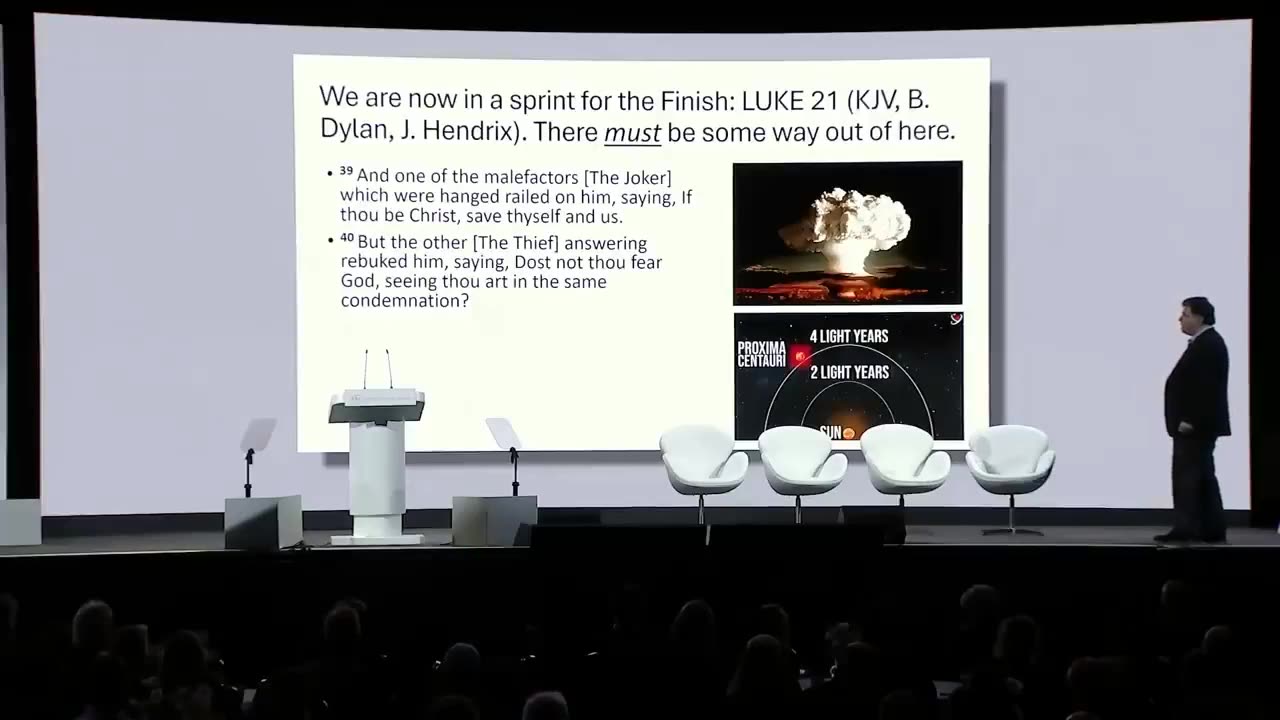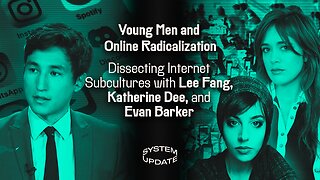Premium Only Content

Eric Weinstein presentation about the unseen war shaping modern society
Eric Weinstein delivered a sobering message about the unseen war shaping modern society. He argues that what many perceive as the "culture wars"—a draining online conflict—is a misnomer. Instead, Weinstein asserts, society has been embroiled in a hybrid war, a concept introduced by Frank Hoffman in 2007.
Hybrid warfare, he explains, is a borderless, non-kinetic conflict with no clear end, waged through cyberattacks, psychological operations, diplomacy, and information warfare. Unlike traditional wars, it treats everyone as a combatant, manipulable through the internet, with no frontier to shield individuals from foreign influence.
Weinstein emphasizes that the national security community has long discussed these tactics, yet the public remains largely unaware of the terminology and frameworks defining this conflict. He introduces the concept of the "human terrain system," where social sciences—cultural anthropology, economics, psychology—are weaponized to map human behavior.
Clicks, dwell times on websites, and even intimate online activities become data points for national security actors who view individuals as terrain to be exploited, not as citizens to be protected. These actors, often faceless, leverage universities and social sciences to wage war over the populace.
Central to Weinstein’s thesis is the "whole of society approach," an innovation from the Asia Pacific Security Center named after Daniel Inouye. This approach aligns societal institutions—media, corporations, academia—to combat hybrid wars.
However, Weinstein warns that this coordination resembles "soft fascism," binding institutions in lockstep, as seen in the uniformity of narratives across outlets like The New York Times, Washington Post, BBC, and NPR. He provocatively labels these aligned institutions "hoes," questioning their claim to represent the "whole of society."
Those excluded from this alignment, he suggests, form the "benighted rest of society" (BROS), represented by groups like ARC, who resist the influence of global entities such as the World Economic Forum led by Klaus Schwab. These entities, Weinstein argues, have long known a war is underway, while the public remains oblivious, granting them a strategic advantage.
Weinstein reframes the culture war as a domestic hybrid war, which he terms the "no name revolution" since February 2017. This revolution, he notes, was not merely rhetorical but kinetic, marked by burned buildings, destroyed gas stations, and lives lost. He points to everyday institutions as complicit in this war, citing hotels like Aloft that maintain guest dossiers and surveillance footage, readily shared with authorities.
Consumer devices, he adds, lack basic privacy protections—such as opaque lens covers or kill switches for cameras and microphones—despite their negligible cost, rendering them potential listening devices accessible to governments. Delving into the broader context, Weinstein questions why such pervasive surveillance and control persist.
He references a query to an advanced AI model, which identified the period from 1945 to the present as Western Europe’s longest stretch of peace among major powers. This "great trade," he argues, saw Western vitality sacrificed to avoid thermonuclear war, a bargain upheld since 1952.
However, he warns that this trade ended in January 2025, signaling the end of the "great nap" and a return to vitality—and likely kinetic conflict. Europe, far from a quaint Disneyland, remains the world’s most dangerous region, poised for instability. Weinstein concludes with an urgent call to action.
Humanity, he argues, is at a crossroads, marooned in a solar system with only two marginally habitable rocks beyond Earth, unable to escape the constraints of physics. With powerful tools and volatile human nature confined to one planet, the stakes are existential.
The hybrid war, he insists, is a sprint to the finish, demanding that society confront these challenges head-on. Building solutions, he suggests, requires acknowledging the war’s reality and reclaiming agency from those who manipulate the human terrain.
-
 1:13
1:13
573F4N0
1 day agoNew Jersey nurse Lexi Kuenzle, suspended for reporting a Doctor cheering Charlie Kirk’s death
16 -
 1:09:13
1:09:13
Man in America
13 hours agoSICK: Xi & Putin Caught Plotting Organ Transplants for “Eternal Life”
92.9K34 -
 6:04:35
6:04:35
Drew Hernandez
14 hours agoMASS CONFUSION AROUND CHARLIE'S MURDER
68K54 -
 1:01:40
1:01:40
HotZone
6 days ago $14.06 earned"Prepare for WAR" - Confronting the URGENT Threat to America
91.1K29 -
 20:23
20:23
Scammer Payback
15 hours agoTerrifying Scammers with File Deletions
53.6K14 -
 16:22
16:22
The Gun Collective
12 hours agoWOW! 17 New Guns JUST GOT RELEASED!
71K11 -
 1:13:57
1:13:57
Glenn Greenwald
12 hours agoYoung Men and Online Radicalization: Dissecting Internet Subcultures with Lee Fang, Katherine Dee, and Evan Barker | SYSTEM UPDATE #516
198K85 -
 1:14:57
1:14:57
Sarah Westall
10 hours agoCEO of Crowds on Demand: The Fake World of Social Media, Protests & Movements w/ Adam Swart
77.8K16 -
 4:03:25
4:03:25
Geeks + Gamers
13 hours agoTuesday Night's Main Event
87.2K3 -
 40:36
40:36
RiftTV
11 hours agoHow We Got 400 Leftists FIRED for MOCKING Charlie Kirk | The Rift | Guest: Olivia Krolczyk
84.8K68